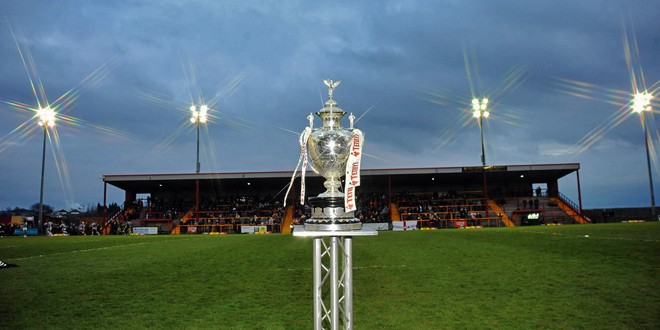 With the quarter-finals taking place this weekend, TONY NOLAN, a regular columnist for League Express, puts forward a proposal that he believes would help restore the magic of the Challenge Cup.
In 2015 British Rugby League is in a new era, with revised league structures and phrases like ‘Every Minute Matters’.
Whilst such changes may hav
With the quarter-finals taking place this weekend, TONY NOLAN, a regular columnist for League Express, puts forward a proposal that he believes would help restore the magic of the Challenge Cup.
In 2015 British Rugby League is in a new era, with revised league structures and phrases like ‘Every Minute Matters’.
Whilst such changes may hav Solving the problem of the Challenge Cup
 With the quarter-finals taking place this weekend, TONY NOLAN, a regular columnist for League Express, puts forward a proposal that he believes would help restore the magic of the Challenge Cup.
In 2015 British Rugby League is in a new era, with revised league structures and phrases like ‘Every Minute Matters’.
Whilst such changes may hav
With the quarter-finals taking place this weekend, TONY NOLAN, a regular columnist for League Express, puts forward a proposal that he believes would help restore the magic of the Challenge Cup.
In 2015 British Rugby League is in a new era, with revised league structures and phrases like ‘Every Minute Matters’.
Whilst such changes may hav 